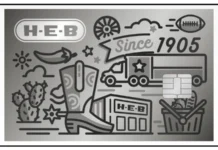Table of Contents
Sometimes, it’s difficult to even think about what it takes to build an emergency fund because you don’t know how to do it. An emergency fund is like the fire extinguisher you keep at home but hope never to use until and unless there’s an emergency. You feel blessed to have it there for you, right?
Similarly, you need emergency funds when something terrible happens.
Scrolling down in this article, you’ll come across what’s an emergency fund, what’s the importance of saving them, and strategies to build an emergency fund!
First, start with what is an emergency fund?
Let’s go!
What is an Emergency Fund?
An emergency or contingency fund is a cash reserve that you make in a separate account for financial emergencies or unexpected expenses. Usually, you do emergency savings to pay for your big or small unplanned bills that fall outside your routine monthly spending patterns and expenses.
These emergency savings are used when an urgent need arises, such as losing your job or when a medical bill steps up. Emergency funds help you pay for all the necessities in your life without putting a burden on your credit card balance, sneaking in your home equity, or taking out a loan that may eventually put you in debt.
It’s important to remember that an emergency fund is not for gazing at a fancy dress for your best friend’s wedding or for buying that expensive iPhone (A Big No, for sure!).
You should know what importance this emergency fund holds, why you need it, and when you can use it.
In the next section, you’ll learn why it’s important to build an emergency fund.
The Importance of Saving Emergency Funds
The COVID-19 pandemic has reflected why you should have an emergency fund when a storming crisis hits your life. Emergency funds are the shock absorbers that keep you from the pile of debt.
A dent in your finances comes with challenging situations that give you the self-realization of how important it is to manage your emergency funds, as it doesn’t tell you the time when a series of unexpected events can take a deep dive into your well-settled account.
Let’s say you lose your job, which is the source of your income. The emergency funds help you meet your end goals. Otherwise, how would you pay your rent and other necessary bills without this fund?
Hence, this emergency fund offers you the time you need to make an interesting and, most importantly, the right decision about how your job choice will affect your bank account in the long run. On the contrary, in the absence of these funds, you may feel the pressure to choose a job option that’s not the best fit for you or that you may end up losing soon.
If an emergency car repair comes up, a major accident happens, or an unexpected illness pops up, your savior emergency fund will help you pay for your giant medical bills that otherwise would have hurt your financial world.
The importance of emergency funds is evident from the above situations. Therefore, nearly 3-6 months of savings from your salary can help you build an emergency fund and avoid any unforeseen situations.
What you should implement to make this saving happen for emergency funds is explained below.
11 Strategies to Build an Emergency Fund
Have a look at some of the best strategies that help in building an emergency fund and drag you out of paying a never-ending loan or debt:
1. Set a Goal and Analyze Your Success
You count the number of steps you take while walking to achieve your target for the day, which is weight loss. Use a similar approach when saving for the emergency fund.
Focus on setting a goal by signing up to receive bank account transaction emails from your bank. These frequent reminders may inspire you to stash cash to accomplish your desired goal.
2. Keep an Eye on Generating Extra Stash Cash
In recent times, there has been a rapid increase in inflation rates, and thus, it has become essential to work on side gigs and let your account rain money.
You can earn some extra money with the help of some apps, such as Swagbucks (where you need to complete a few surveys, play games, watch videos, and more), Ibotta (a cashback app that helps you make money by doing in-store or online shopping), Survey Junkie (a survey app that helps users make money by completing surveys), Foap (a mobile app that helps you make money by selling photographs you take with your mobile), and more.
3. The Mountain of Change in Your Jar Will Help
Even a little help when the situation demands it. Likewise, you can save hundreds of dollars by collecting spare change in the jar.
Don’t overlook the change floating down in your purse; it can also help you save money for your emergency fund.
4. A High-Yielding Savings Account is a Savior
High-yield savings accounts are productive accounts that offer above-average interest rates and enable you to access fast, penalty-free cash that you require in tough times.
You need only open an emergency fund by opening a high-yielding savings account with SoFi, American Express, and more.
5. Open a Money Market Account
Placing your emergency savings in a money market account proves to be one of the best choices when it comes to savings in emergency funds.
Alliant Credit Union, Ally Bank, and Discover are some of the top money market accounts that help you offer better interest rates and give you access to quick and fee-free cash.
Remember, while you’re free to withdraw as much money as you want from a money market savings account (MMA), several MMAs have restrictions on the number of withdrawals you can make. Otherwise, you get charged after using the account for six months. Therefore, go for a credit union or bank with no minimum balance requirements or zero monthly fees.
6. Preferring No-Penalty CD is a Smart Move
A no-penalty CD can work for your emergency fund. Remember not to open a traditional CD, where you need to lock in your money for a certain period, like 12 months or five years. And when you withdraw your money early before that lock-in period ends, you might pay a hefty penalty for early withdrawal.
Nonetheless, several banks, along with some credit unions, offer no-penalty CDs. Thus, you can lock your money with a no-penalty CD, where you get a higher interest rate without fear of being penalized for early withdrawal.
No-penalty CDs offer higher interest rates or yields than MMAs or savings accounts. Hence, people looking for long-term emergency funds must keep an eye on putting some cash in a liquid account, such as savings or MMA, and the rest in a no-penalty CD. Options, such as Lending Club CD, will help you do so, where you can securely keep your emergency funds.
7. Adjust Your Taxes
Instead of waiting for one year or the next tax day to get the emergency stash, you must look out for filing a revised W-4 form with your company/employer, where you can adjust your tax withholding. This act of yours will help you stack extra money in your paycheck every month. Consequently, you’ll see a good amount residing in your savings account, which is growing well with better interest rates.
Remember to request your employer to deposit the designated amount into your savings account directly. This way, you won’t witness the cash flaw in your checking account that may entice you to overspend.
8. Living Paycheck to Paycheck Cycle Works
According to the Federal Reserve survey, several Americans rely on living paycheck to paycheck for their routine lifestyle. This is why earning extra cash for your emergency fund becomes important.
Couples should sit down and make notes on their daily spending patterns, determining what expenditures they should cancel out and where they should spend their money. Next, make combined decisions on what to cut or reduce from their day-to-day budget while crafting their rainy day fund. You can put your bonuses and income tax refunds into your emergency funds.
9. Say No to Coffee for a Spell
Buying fewer coffees can help you manage your finances, ultimately impacting your emergency savings. You can make coffee at home for a while and save up to $5 to $6 a day (pat yourself on the back, as cutting down on caffeine content burns a lot of calories, too).
Maintaining a disciplined routine can help you save up to $35 a week, which leads to $2,000 in savings for your emergency fund annually. Sounds incredible? Hell yeah!
10. Cut the Cable Cord
Are you paying utterly for your premium cable channels? Then, consider chopping off a few channels from your cable bill.
Moreover, think of reducing the number of cable boxes since you’re paying extra money for each box. You can even ask your cable company for discounts and promotions that will help you save.
Several Americans nowadays are cutting down on cable cords who are not big fans of watching TV, and as a result, they save a lot of money. You can do the same (at least for a few months?!).
11. Don’t Over Save
Refrain from stashing excess savings in your emergency fund. An emergency fund implies accessing quick cash in unexpected circumstances with savings of at least 3-6 months. But if you have reached your goal of saving a good amount for your emergency funds, you stop and start depositing this cash into, let’s say, retirement or IRA accounts where your money will reap higher interest.
You can accelerate your retirement savings with M1 Finance IRA, which charges no fee, or with Betterment IRA, which can help you manage your money without any hidden cost.
Don’t forget to check out this blog: Passive Vs Active Investing
Final Words
When life meets some unexpected twists and turns or a highly-priced emergency knocks on your door, you will need that financial nest to hit back at all the unplanned bills.
Remember this tip: money takes years to refill in your account once spent. Treat your emergency funds like an insurance policy that covers unexpected bills and avoid the requirement for having high-interest loans or credit cards.
Make it your top priority to build an emergency fund, even if you start small. It certainly makes a huge difference in financially challenging times.
Want to learn more about managing emergency funds and overcoming emergencies with your financial cushion? Subscribe to our newsletter and be updated.



